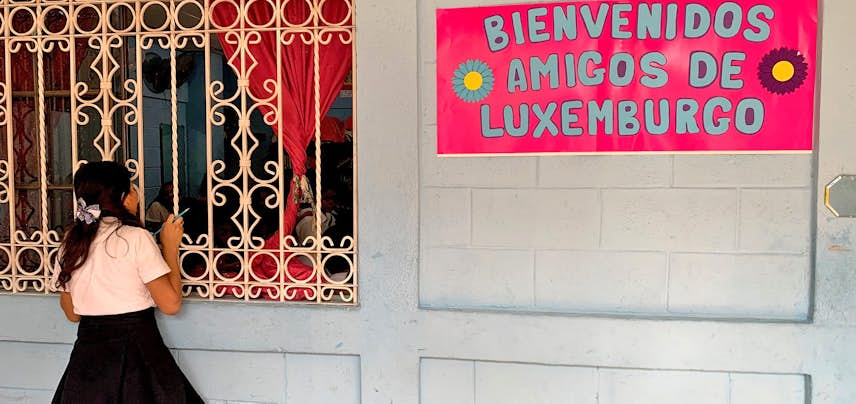Gender
WOMEN AT THE HEART OF THE LUXEMBOURG’S DEVELOPMENT COOPERATION AGENDA
Gender equality is one of the main prerequisites for achieving sustainable and inclusive development. For example, the gender dimension of development aid is an absolute precondition for a fairer and more equal world, as well as for the achievement of the 2030 Agenda for sustainable development.
Gender inequalities and their multiple impacts persist, particularly in the most vulnerable countries, especially in the Sahel, despite remarkable progress in the context of the MDGs in improving people’s well-being. While gender equality is vital in making economic systems prosperous and inclusive, addressing major health problems, fighting poverty and mitigating the effects of climate change, women and girls continue to suffer disproportionately from the consequences of poverty and exclusion.
As part of the government’s feminist foreign policy, Luxembourg’s Development Cooperation has a focus on promoting SDG 5 - gender equality as a human right and the empowerment of all women and girls. These two intrinsically linked concepts will be systematically adopted in all development cooperation policies and programmes.
Luxembourg’s Development Cooperation is committed to ensuring that the gender dimension is taken into account in a cross-cutting way, particularly in fragile and conflict zones, such as in the Sahel region. Only integrated political, security, development and women’s rights action can lead to a sustainable stabilisation of women’s and girls’ rights. To achieve sustainable results, the gender dimension is implemented through both bilateral partnerships and multilateral agencies. Many Luxembourgish and local NGOs operate directly at the EU level.
GENDER IN LATIN AMERICA
In Nicaragua, Luxembourg is a founding member of and a major donor to the Common Fund for Civil Society in Nicaragua (FASOC), managed by Oxfam. In 2019, the Fund supported six projects by local NGOs (with a total budget of USD 500,000) for the social, political and economic rights of women and for combating all forms of violence against women and girls.
In Central America, Luxembourg supports a regional programme (2018-2020, USD 1.5 million) for female entrepreneurs with CENPROMYPE (regional centre for the promotion of micro, small and medium-sized business in Central America) in SICA’s eight member countries. The main objective is to strengthen women’s economic autonomy and thus reduce economic inequalities between men and women.
In 2019, Luxembourg pledged to support a new programme with the International Organization for Migration (IOM) (2019-2022, with a total contribution from Luxembourg of EUR 1.4 million) aimed at strengthening institutions for the protection of female victims of violence during migration processes in Central America. Women account for 53% of the Central American migrant population, where social and physical violence are both reasons triggering migration and risk factors during the migration process. This regional programme aims to promote the inclusion of measures to protect migrant women in public policies in Central America and the Dominican Republic and to prevent gender-based violence.
GENDER IN AFRICA
In Senegal, Burkina Faso and Niger, Luxembourg is partnering with UNFPA to strengthen the delivery of maternal health, family planning, nutrition and sexual and reproductive health services to women and adolescents, particularly the most vulnerable. Through support to the NGO ECPAT, since 2017 Luxembourg’s Development Cooperation has been supporting a project to reduce the sexual exploitation of children in West Africa and South Asia.
GENDER IN LAOS
In the context of ICP IV interventions, there is a particular focus on the specific needs of women and the potential impacts on their livelihoods. To this end, OECD DAC policy markers have been incorporated into Luxembourg’s Development Cooperation project evaluation and monitoring systems. These indicators thus provide disaggregated data on gender. The tourism and hospitality human resources development project in Laos has even made gender one of its priorities and is developing a gender-based strategy. Luxembourg is thus a partner and supporter of the LGBTQI movement in Laos, through the association Proud to be us Laos.
Other key new projects in 2019 include the construction of a centre for victims of sexual violence in the Casamance region of Senegal and a project in the area of sexual violence prevention and intervention services targeting the Yazidi population in Iraq.
